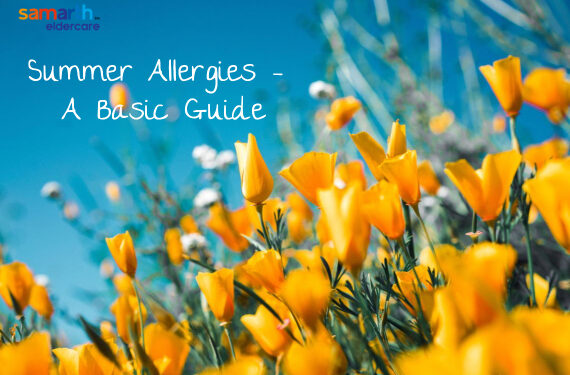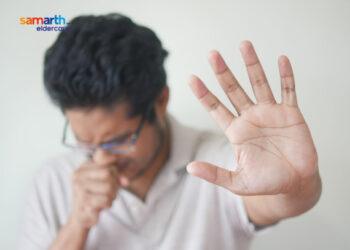One may feel that with the onset of summer, the only issue we have to deal with is the heat. Some parts of North India are already reeling in the heatwave with temperatures crossing 40 degrees. In South India, it is extreme summer, with people preferring to stay indoors. However, it is not just the heat one has to deal with in summer. Many summer allergies can cause havoc, and you may probably not realize that it is an allergy that you are dealing with. Also, with Covid-19 not entirely out of the picture yet, and some common symptoms, there is always a chance we are confused. So, here is a basic guide to understanding summer allergies.
The allergens of summer
Often, we wonder why we get these allergy symptoms in summer when the cold and spring season is over. However, one of the significant reasons for summer allergy is pollen. In India, we have two pollen seasons – the tree pollen season from February to April and the grass pollen season between September and December. Hence, pollen allergies can occur even in summer. It may manifest as simple allergy symptoms like sneezing, watery eyes and nose, itchy nose and eyes, and congestion.

Join Now >
People who have issues like asthma and allergic rhinitis may find it difficult to cope with these allergy symptoms as it may aggravate their issues. If you spend time outside, you are more likely to get severe allergy symptoms if you are prone to it. However, even if you are not stepping out, it may mean that you can escape the allergy. The pollen in the air can travel for miles and can even be in the indoor air. This summer allergy phenomenon is also called hay fever.
The pollen thrives during the day when we step out and stick to our hair and clothes, and we carry it back home. Also, those in the air settle down in the evening when the air is cooler. Hence, the symptoms may turn severe during the evening and night. If we do not take a shower and change our outdoor clothes, the pollen will continue to aggravate the symptoms as well. Additionally, the summer allergies may also be due to mould, insect bites, certain summer fruits, veggies, etc.
What happens with pollen?
When people allergic to pollen come in contact with it, their immune system releases antibodies to attack these allergens. This results in a release of histamines into the blood. Histamines are a form of chemicals that trigger the various allergy symptoms that, apart from what is mentioned above, may also include itchy sinuses, throat, ear canals, etc.
If any of these symptoms last longer than ten days, it can be presumed to be a summer allergy. However, rather than a self-diagnosis, it is better to visit a physician who may ask the right questions and help diagnose the same. The issue is that most allergies, including food and drug allergies, also have similar symptoms, and hence, a professional diagnosis is the best way out. Most allergies tend to be genetic, so that is one reason to check it out. Some summer fruits such as berries, peaches, watermelons, and sometimes even mangoes can cause allergies. This is because these fruits have protein structures similar to that of pollen. The doctor may decide to do a skin allergy test, blood test, or a prick test to decide on the allergen and treat you accordingly. Most often, anti-histamines are prescribed to bring down the symptoms. For many people, symptoms may also be short-lived and go off without any treatment as well.
How to deal with it?
Staying indoors and keeping the doors and windows closed is one way of dealing with pollen allergies. Washing clothes more often and not hanging them out to dry in the open is another option. The pollen in the air can sit on the clothes and cause issues when you wear them. Taking a bath at night, washing hair often, and changing bedclothes more often good ways to keep the summer allergies down.
Alternatively, you could check out an indoor air filter with HEPA that effectively removes air pollen. Air pollution, which is prevalent in some parts of India can also add to the woes of summer allergies. Hence, air filters are a good way to deal with allergies. Wearing sunglasses and a mask (which in any way we do now) is a good counter to pollen allergy. This ensures that the pollen doesn’t come in direct contact with eyes and mouth, etc. Using an air conditioner at night can help keep the pollen allergens away. Dust all parts of the home thoroughly to ensure pollen is not getting accumulated.











